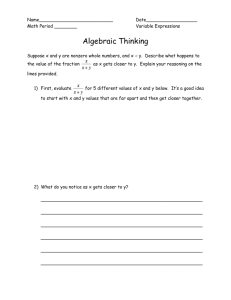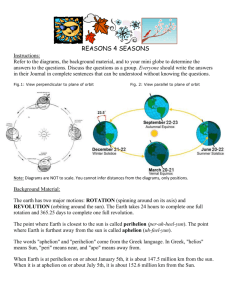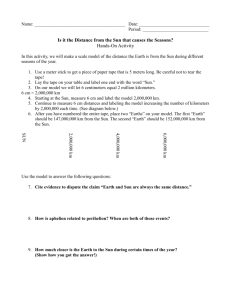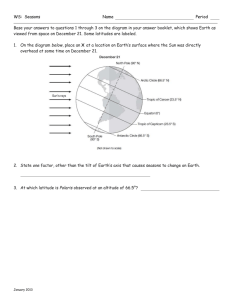What Causes the Seasons? Common Misconceptions
advertisement
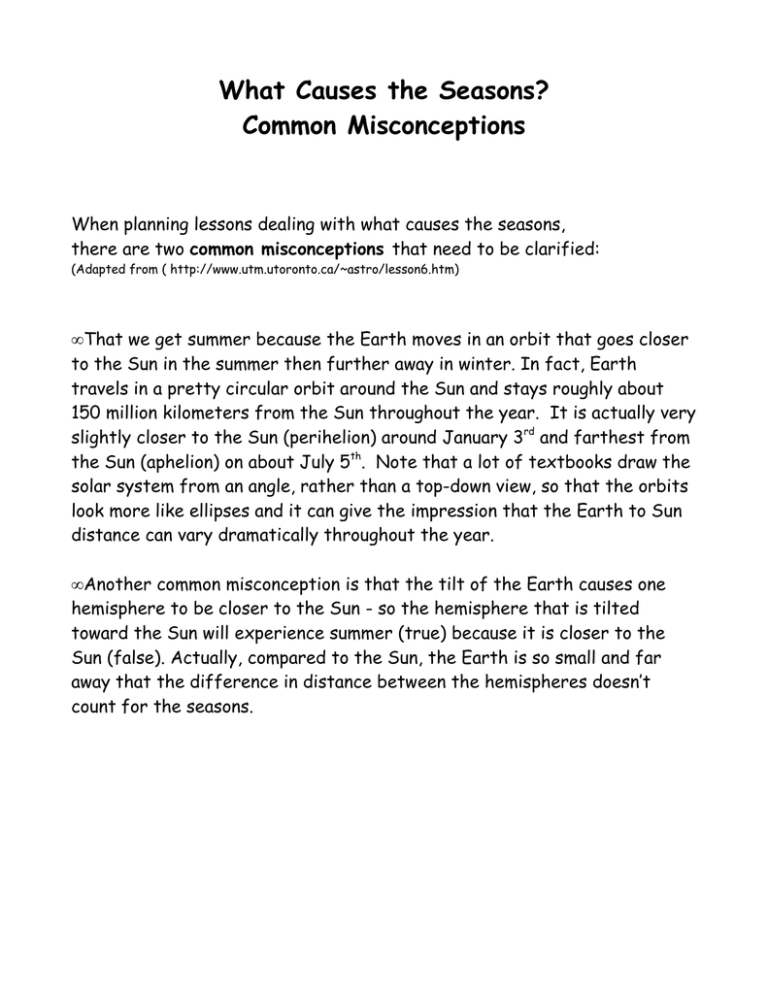
What Causes the Seasons? Common Misconceptions When planning lessons dealing with what causes the seasons, there are two common misconceptions that need to be clarified: (Adapted from ( http://www.utm.utoronto.ca/~astro/lesson6.htm) • That we get summer because the Earth moves in an orbit that goes closer to the Sun in the summer then further away in winter. In fact, Earth travels in a pretty circular orbit around the Sun and stays roughly about 150 million kilometers from the Sun throughout the year. It is actually very slightly closer to the Sun (perihelion) around January 3rd and farthest from the Sun (aphelion) on about July 5th. Note that a lot of textbooks draw the solar system from an angle, rather than a top-down view, so that the orbits look more like ellipses and it can give the impression that the Earth to Sun distance can vary dramatically throughout the year. • Another common misconception is that the tilt of the Earth causes one hemisphere to be closer to the Sun - so the hemisphere that is tilted toward the Sun will experience summer (true) because it is closer to the Sun (false). Actually, compared to the Sun, the Earth is so small and far away that the difference in distance between the hemispheres doesn’t count for the seasons.
